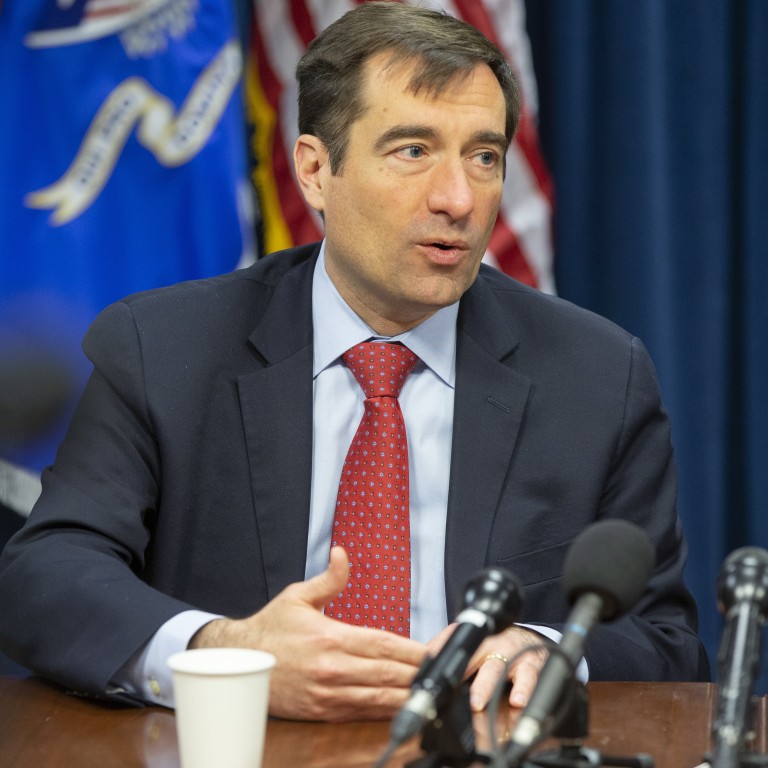
EU is moving closer to Washington’s position on Beijing threats, Trump administration official says
- John Demers, who heads the Justice Department’s counter-espionage effort, says ‘Hong Kong and the Uygurs have been the biggest issues’ for Europe
- The US is working with European partners to develop digital standards to address ‘the long-term threat to data privacy, security and human rights
China’s recent actions in Hong Kong and the Xinjiang Uygur Autonomous Region (XUAR) have driven European countries closer to Washington’s position about dangers posed by Beijing, the US assistant attorney general for national security said on Wednesday.
“Hong Kong and the Uygurs have been the biggest issues … in my discussions with the Europeans,” said John Demers, who heads the Justice Department’s counter-espionage effort, known as the China Initiative.
“We have a lot of our disagreements with the Europeans about different things, but the truth is at the end of the day we do share the same political values, and that is very helpful when we’re having these discussions,” he said in an online discussion at the Washington-based think tank Centre for Strategic and International Studies. “What happened in Hong Kong with the breaking of promises that they made in ’97, what’s happening with the Uygurs has really helped us.”
The US government has been pushing its allies to ban the use of technology provided by Chinese telecoms giant Huawei Technologies in next-generation 5G mobile infrastructure, often using evidence turned up by investigations conducted by Demers’ division.
The effort has gathered momentum as it has turned into what the State Department calls the “Clean Network” programme, for which it is working with European partners to develop digital standards to address “the long-term threat to data privacy, security, human rights and principled collaboration”.
Senior Beijing diplomat says he is ready to talk to US leaders any time
Last month, US Secretary of State Mike Pompeo sanctioned XUAR party secretary Chen Quanguo and three other top officials of the region’s leadership, as well as other unidentified people “believed to be responsible for, or complicit in, the unjust detention or abuse of Uygurs, ethnic Kazakhs and members of other minority groups in Xinjiang”.
In remarks to the Czech Senate on Wednesday, Pompeo said upcoming talks with Brussels would “start a dialogue focused between the EU and the United States on China and how we will jointly confront it”.
Demers also claimed that China’s dealings with European countries during the spread of Covid-19 in the region further frayed Beijing’s ties with the EU.
“China's behavior during the coronavirus has actually helped move some folks into our camp, especially in Europe, by illustrating some of some of the risks” of engaging with Beijing, he said.
The official characterised Beijing’s offers to European countries as “somewhat ham handed attempts to dole out assistance, personal protective gear, et cetera, while requiring countries to thank them publicly for the great assistance they received from the wonderful country of China”.
“When you do it really obviously, it comes off the wrong way, like conditioning humanitarian assistance on deep expressions of gratitude,” Demers said.
China’s embassy in Washington did not immediately respond to a query about Demers’s remarks.

